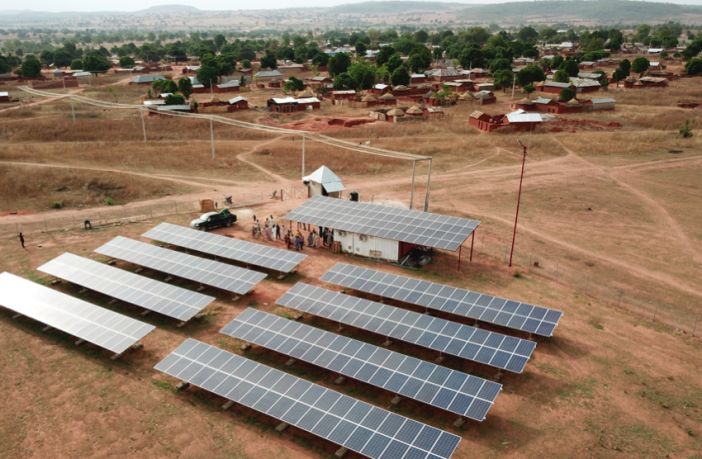- The African Development Bank Board has approved the allocation of $20 million in loans to the Democratic Republic of Congo, to support renewable-based, mini-grid solutions to the off-grid cities of Isiro, Bumba and Genema.
- Upon completion, the envisioned mini-grids that range from 3 to 10 MW will directly connect 21,200 households and 2,100 SMEs and public buildings, benefitting at least 150,000 people.
The DR Congo Green Mini-Grid Program will serve as the pilot to an innovative private-led electrification approach to deploy renewable-based mini-grid solutions in the central African nation. The program will supply power to cities with sizeable populations, some of them with a few hundred thousand inhabitants, without any access to modern energy.
With limited grid coverage – around 10% nationally – many Congolese rely on kerosene or diesel fuel for their lamps, cookers and electricity generators. Less than 1% of rural and 35% of urban areas have access to electricity from the national grid. Sub-Saharan Africa averages 24.6% on-grid electricity coverage.
The Bank’s financing will complement the UK’s Department for International Development-backed Essor – Access to Electricity (A2E) initiative, which is a technical assistance program that supports the Government-led mini-grid auction and project preparation. The DFID support seeks to promote the proliferation of private-led green mini-grid projects in the DRC.
The Bank will provide a blend of private and concessional resources notably from the Green Climate Fund (GCF) and other development partners to the sponsors/consortia that will be selected in the auction process. The Board of the GCF approved $21 million for the program during its 21st Board Meeting in October 2018.
The Bank is also providing a US$1 million Sustainable Energy Fund for Africa (SEFA) grant to provide advisory services to the Government of the Democratic Republic of Congo for the procurement of solar PV mini-grid systems. The advisory services also encompass mini-grid regulatory framework development, project feasibility studies, extensive policy and regulatory level engagement.
Upon completion, the envisioned mini-grids that range from 3 to 10 MW will directly connect 21,200 households and 2,100 SMEs and public buildings, benefitting at least 150,000 people.
Amadou Hott, the Bank’s Vice-President for Power, Energy, Climate Change and Green Growth said the Bank’s financial support to DR Congo’s off-grid electricity program would transform the country’s energy sector and deliver high development impact. He observed that while helping to eradicate the use of diesel fuel in the target communities, the program will also foster the country’s transition to low-carbon growth.
“The innovative scheme under this program is also expected to demonstrate viability for private sector led mini-grid financing which will open up a market for mini-grid investment in sub-Saharan Africa. We hope to replicate the same model once this pilot demonstrates success”, Hott remarked.
Daniel Schroth, the Bank’s Acting Director for Renewable Energy & Energy Efficiency also added that, “The long-term and concessional financing provided by the Bank and the GCF, and potentially other donors, will enhance the commercial viability of the mini-grid projects while ensuring affordable tariffs. The Bank’s significant commitment, which is in line with its mission to deploy well-structured, innovative financing to power the continent, will provide additional comfort to investors.”
Author: GBA News Desk
Source: African Development Bank















